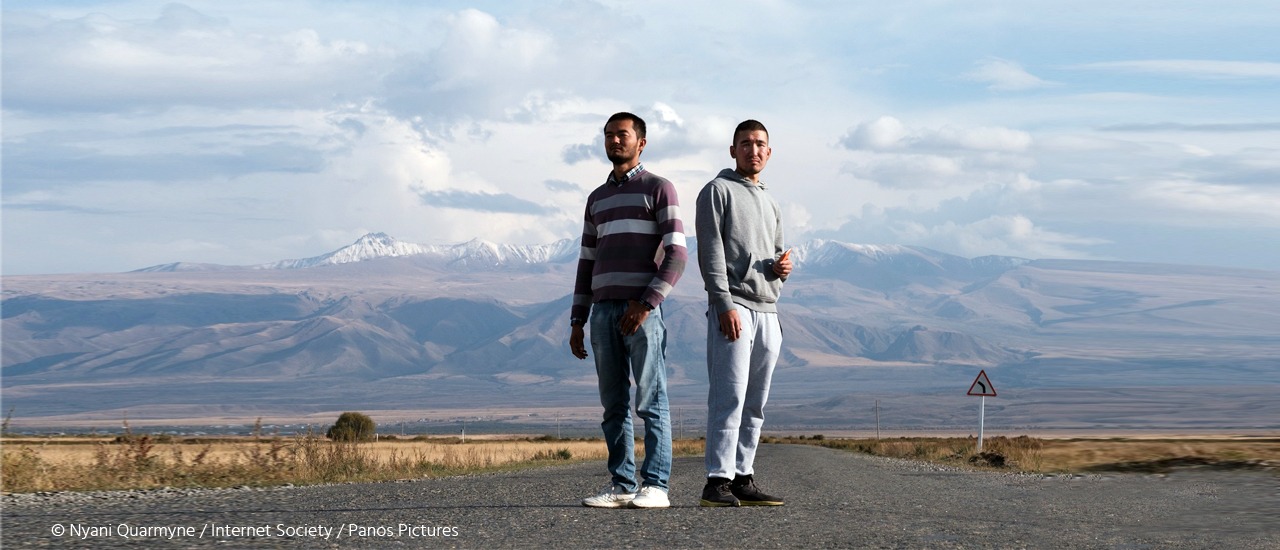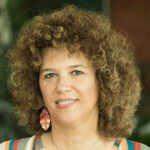Kyrgyzstan’s transition to post-Soviet renovation toward a free market economy has had severe effects on the nation’s educational system. Having limited resources, schools in Kyrgyzstan desperately need more teachers. Currently, there are over 2500 teaching positions not being covered, most of them in the fields of natural science and mathematics.
Aiming to cover the need of affordable education, the Internet Society Kyrgyzstan Chapter developed Spring of Knowledge, a project supported by the Internet Society Beyond the Net Funding Programme, to provide new learning opportunities via digital self-study materials, such as offline access to Wikipedia, the Khan Academy online courses, as well as eBooks and video lessons in local languages.
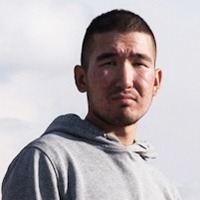
Isabek Asanbaev,
Project Manager
“The provision of textbooks in schools during the 2013-2014 academic year was only 73%,” explains the project manager Isabek Asanbaev. “The Kyrgyz Republic was ranked last in mathematics, science and reading among nations that participated in the 2006 and 2009 rounds of the Program for International Student Assessment (PISA). The National Sample-Based Achievement Test (NSBA) showed the same trend of underachievement. Our project aims to provide an opportunity for children to continue learning through self study in schools that don’t have enough teachers and books.”
What motivated the Chapter to take this initiative?
“One of our Chapter members, the engineer Erjigit Imamov, has been working on a prototype for several years, and consequently presented the prototype to the other members and the Board. The concept was considered very practical, innovative, inexpensive, and with high potential for impact. So we decided to define some pilot locations of where to start the experiment, calling the device Bilim Bulagy (Spring of Knowledge in the Kyrgyz language).”
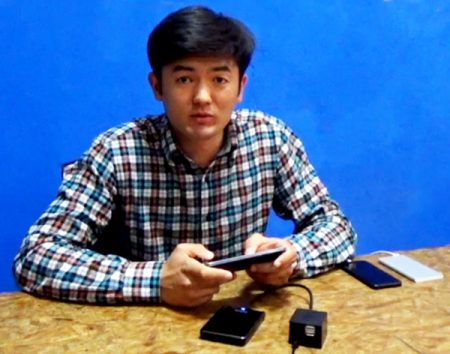
Erjigit Imamov, inventor of the prototype
How can this project be a great opportunity for the local community?
“We signed a Memorandum of Understanding with the Ministry of Education and Sciences, to cooperate on the implementation of the project. The cooperation framework, elaborated by the Chair of the Kyrgyzstan Chapter Talant Sultanov, will also facilitate the negotiations with stakeholders in the government.”
“Local communities can benefit by using the digital library to learn new skills and improve their education. In our communities, many people with understaffed schools resort to inner migration to give their children a chance at a better education in the capital or a regional major town. This project is also a big opportunity to not abandon their homes for such communities.”
Tell us what you expect to achieve, listing 3 main project objectives.
- Improved learning outcomes in mathematics, natural sciences, and reading skills
- Increase schoolchildren’s involvement in the educational process
- Stimulate schoolchildren to learn independence and responsibility for their own education
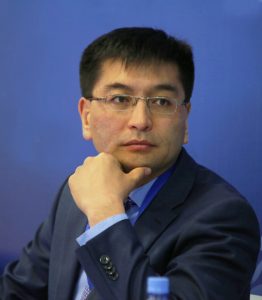
Talant Sultanov,
Chair of the Kyrgyzstan
Chapter
Talant remarks that the Spring of Knowledge’s devices will also be able to help rural libraries: “We have piloted in one of the libraries near Bishkek. This initiative drew interest from different partners and stakeholders. For instance, a local NGO, Urban Initiatives, is helping establish cooperation with libraries. In the meantime, the Soros Foundation and USAID expressed interest in distributing these devices to dozens of their partners in rural areas of the country.”
How will the project contribute to the Chapter’s local presence and Internet Society’s mission in general?
“The project contributes to the United Nations Sustainable Development Goal 4 – Quality Education – and has caught the attention of many donor organisations that support the development of education in Kyrgyzstan. The kickoff meeting of stakeholders was a major success, drawing the interest of Open Society Foundations, UNICEF, USAID, the Ministry of Education and Sciences, as well as other public education professionals. The US Embassy has provided an additional grant to the Chapter for this project, and the Chapter’s local presence has increased significantly. The project supports education in a developing country, which is one of the Internet Society’s major activities helping achieve its mission.”
Watch the video with Erjigit demonstrating the Bilim Bulagy device:
Do you have a great idea to make your community better via the Internet? Apply for a Beyond the Net grant, which funds projects up to $30,000 USD, and follow Beyond the Net on Twitter!
